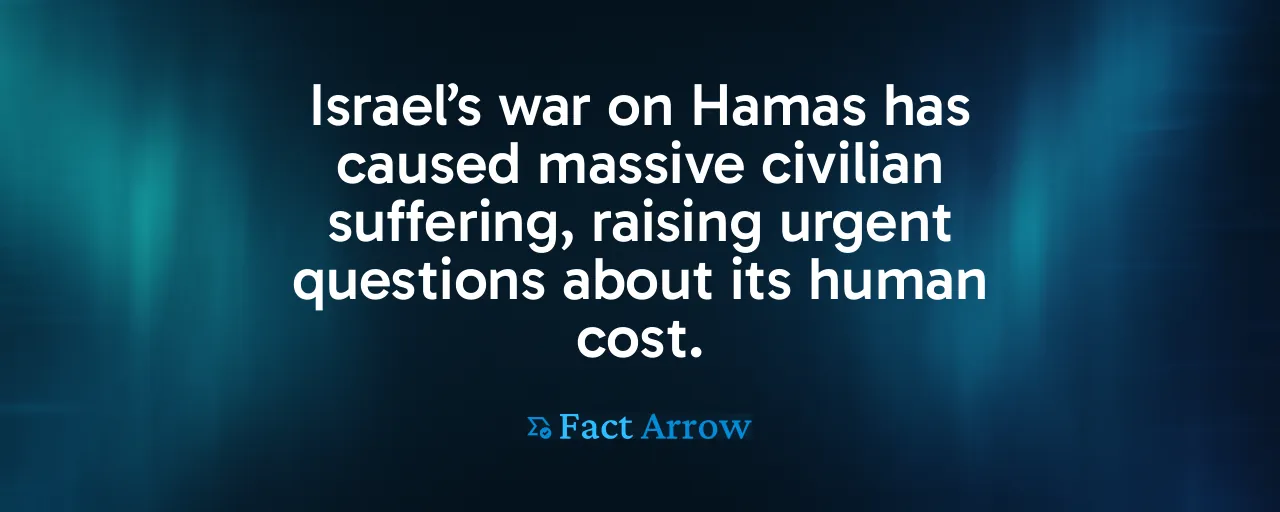A Vow That Shakes Gaza
Israeli Prime Minister Benjamin Netanyahu has doubled down on his promise to eradicate Hamas, declaring in recent statements that there will be no 'Hamastan' in Gaza. His words, delivered with unwavering resolve, aim to reassure Israelis still reeling from the group's brutal October 2023 attack, which killed 1,200 people and saw 250 taken hostage. As the war grinds into 2025, the human and diplomatic costs of this pledge are mounting, raising urgent questions about its feasibility and consequences.
The campaign has reduced much of Gaza to rubble, with over 50,000 Palestinians reported dead and entire communities displaced. Famine looms, infrastructure lies in ruins, and global criticism grows louder. For many, the urgent question is how this all-out war can deliver security without sacrificing humanity, even as Hamas faces calls for justice. The answer lies in rethinking the path forward, prioritizing lives over political wins.
The Humanitarian Price
Gaza's civilians bear the heaviest burden. Estimates suggest the war has displaced nearly all of its 2 million residents, with many crammed into makeshift shelters lacking food, water, or medical care. Humanitarian groups warn of starvation and disease, while destroyed hospitals struggle to treat the wounded. The scale of suffering has drawn sharp rebukes from the United Nations and aid organizations, who argue that the military approach risks violating international law.
Advocates for peace point to these numbers as proof that eliminating Hamas through force alone is neither practical nor moral. Military scholars agree, noting that insurgent groups often survive heavy losses by decentralizing. Historical attempts, like Israel's 1982 campaign against the PLO in Lebanon, show that tactical victories rarely end ideological movements. The cost of trying is clear: a generation of Palestinians radicalized by loss, and Israel's global standing fraying.
A Political Quagmire
Netanyahu's vow is deeply political, extending beyond security concerns. His coalition, propped up by far-right parties, demands a hard line, and critics argue he's using the war to deflect from domestic scandals and security failures. Polls show declining support among Democrats in the United States, Israel's key ally, where President Donald Trump's re-election in 2024 has intensified partisan divides over the conflict. This isolation threatens Israel's long-term diplomatic leverage.
The war's economic toll is staggering. Israel faces billions in costs, labor shortages, and a GDP slump, while Gaza's economy has collapsed by over 80 percent. Reconstruction could take decades, with donor nations hesitant to fund another cycle of destruction. Without a clear plan for Gaza's governance, the risk of a power vacuum looms, potentially fueling new insurgencies.
A Better Way Forward
Voices advocating for a shift see a ceasefire as the first step. A phased deal, exchanging hostages for prisoners and halting hostilities, could save lives and open the door to aid. International oversight, perhaps led by Egypt or Qatar, could monitor borders to prevent Hamas from rearming, while a technocratic administration rebuilds Gaza. Such steps would address immediate needs while laying groundwork for broader talks.
The ultimate goal, many argue, is a political settlement that guarantees Palestinian self-determination alongside Israeli security. Reviving negotiations for a two-state solution, though fraught, remains the most viable path to break the cycle of violence. Past efforts, like the Oslo Accords, showed progress when both sides committed, even if imperfectly. Ignoring this risks entrenching division and despair.
Learning From the Past
History offers sobering lessons. Hamas, born in 1987 and hardened through decades of conflict, seized Gaza in 2007 after Israel's withdrawal. Previous wars in 2014 and beyond weakened its arsenal, but its resolve persisted. Each round of fighting has left Gaza more desperate and Israel less secure, with no lasting resolution. Continuing this pattern, experts warn, could embolden hard-liners on both sides and destabilize the region further.
A different approach requires courage. Regional actors like Saudi Arabia and the Palestinian Authority could play roles in stabilizing Gaza, but only if Israel and the international community commit to a framework that prioritizes rights and security for all. The alternative, endless war, serves no one, least of all the hostages still held or the families mourning on both sides.
Time for Change
Netanyahu's pledge to erase Hamas resonates with those desperate for safety, but its costs are undeniable. The war has shattered lives, strained alliances, and dimmed hopes for peace. A new strategy, rooted in humanity and pragmatism, is overdue. Ceasefire, aid, and talks are necessities, essential to prevent a deeper catastrophe.
The path ahead demands bold choices. International pressure, led by the United States and United Nations, is vital for de-escalation and reconstruction. Palestinians deserve governance that serves them, independent of militias, and Israelis deserve security that does not compromise the dignity of others. Only through compromise can the cycle of vengeance end.
The stakes are clear. Gaza's ruins and Israel's divisions call for a vision focused on healing, not destruction. By prioritizing dialogue and avoiding destruction, both peoples can reclaim a future where security and justice coexist. The time to act is now, before more lives are lost to a war that promises victory, though it delivers only pain.
